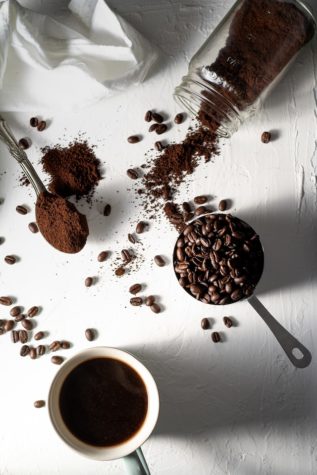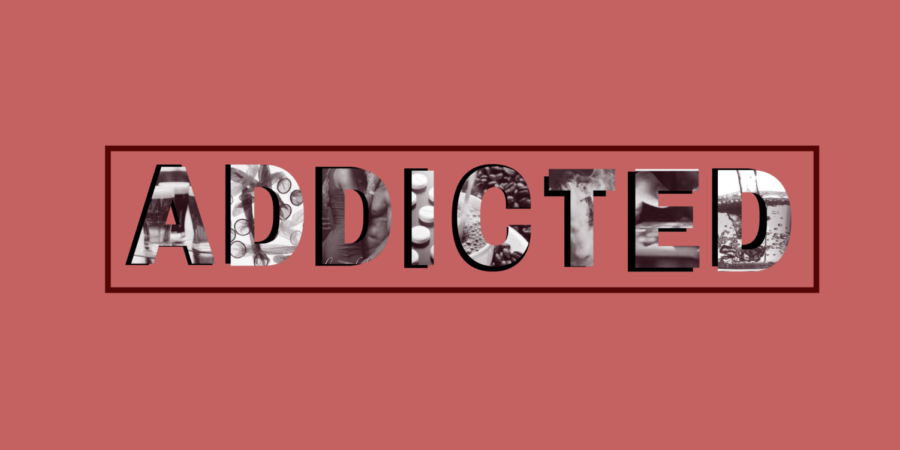ADDICTED: Caffeine, the legal stimulant
“ADDICTED” is a multi-part series that focuses on different addictions that college students face. From alcoholism to addiction to screens, “ADDICTED” will focus on a different form of substance use in each series installment.
October 19, 2022
From a morning cup of joe to chugging energy drinks while pulling all-nighters during finals week, caffeine has been a staple in the lives of college students for generations. In fact, according to Ryan Doyle, the health promotion coordinator for Student Wellness at Iowa State, coffee is the second most consumed liquid on the planet behind water.
Caffeine, which is considered to be a stimulant, speeds up the body’s brain and nervous system. Other stimulants include cocaine and methamphetamine. While caffeine is not illegal and is not nearly as potent as the other stimulants, it can be just as addictive.
“If I miss my coffee, I feel panic and nervous, like I’m going to screw up my whole day,” said Frankie Qu, a PhD student at Iowa State studying kinesiology. “So I would call that an addiction.”
Coffee can be found nearly everywhere on a college campus. For Iowa State, that may be from the coffee machines in dining centers to stopping at The Hub or Bookends Cafe while working at the library or grabbing a cup from Caribou Coffee at the Memorial Union.
While it is a widely-known fact that most college students consume caffeine on a daily basis, according to Doyle, consuming excessive amounts of coffee or energy drinks can lead to a caffeine dependence.
Qu said she consumes up to eight shots of espresso depending on her workload for the day. She said, as a PhD student, she needs to be prepared and energized to teach classes at 7:45 a.m. Qu said the more she has to do that day or the more energy she needs, the more espresso she consumes.
Maura Ortner, a senior studying apparel, merchandising and design at Iowa State, said it is easy for her to be productive while sipping coffee at a coffee shop or stopping to grab a cup before she heads to the library.
Hayden Dumont, a freshman studying business marketing, said it might be the idea of drinking coffee that makes her productive instead of the actual caffeine.
“It might just be for the aesthetic or the feeling of it,” Dumont said. “It’s just the idea of getting coffee.”

Qu said she thinks the first cups of coffee she has make her more energetic, but after that, she is not so sure.
“There’s not [much] difference between eight shots [of espresso] and two shots,” Qu said.
According to Mayo Clinic, a healthy amount of coffee to consume per day is four cups (about 400 milligrams). This is approximately two energy` shot drinks, such as 5-hour Energy, and 10 cans of soda. Doyle said it is highly unlikely for someone to overdose on caffeine, which is a large factor that separates coffee from other stimulants. While overdose is much less likely, Doyle said caffeine dependence is common.
“Dependence is usually where you won’t feel normal without it, and if you stop taking it, you usually go through withdrawal,” Doyle said.
Doyle said caffeine withdrawal can include headaches and irritability, but after a day or two, symptoms should subside.
Ortner said while she regularly sticks to having two cups of coffee a day, she thinks her body is dependent on caffeine. She said if she does not have a cup of coffee a day, she experiences withdrawal headaches.
According to Doyle, being caffeine dependent is not the same as having a caffeine use disorder. He said caffeine use disorder, which is identified in the Diagnostic Statistical Manual of Mental Disorders, is very rare because, in order to be diagnosed, an individual must significantly struggle with their caffeine use.
Doyle said other symptoms necessary to being diagnosed with a caffeine use disorder include continuing to consume caffeine if a person is experiencing adverse consequences, ruminating on caffeine daily and lying to hide their caffeine intake.
According to the National Library of Medicine, the DSM-5 recognized five caffeine-related diagnoses: Caffeine-Induced Anxiety Disorder, Caffeine-Induced Sleep Disorder, Caffeine Intoxication, Caffeine Withdrawal Disorder and Unspecified Caffeine-Related Disorders.
While these disorders have been officially recognized, there is not enough evidence to show if caffeine is similar to other substance use and abuse disorders.







